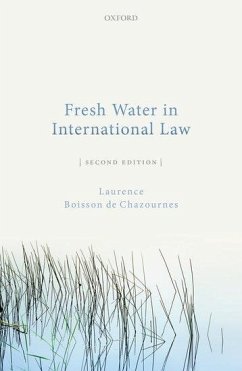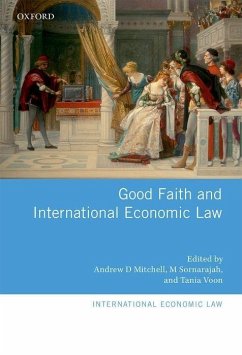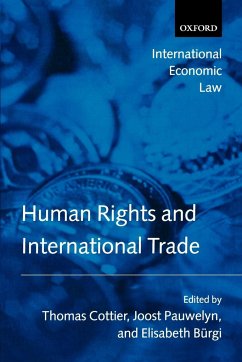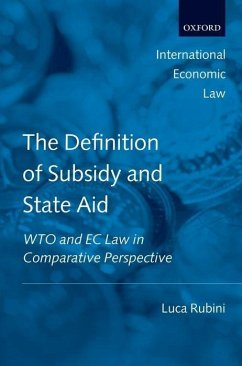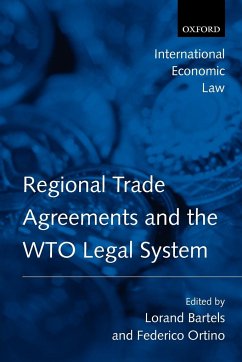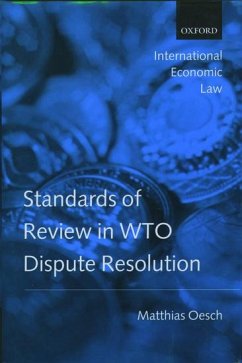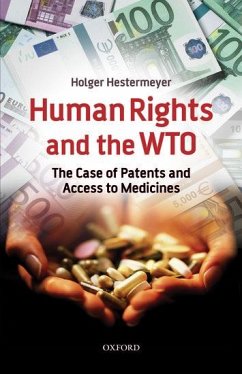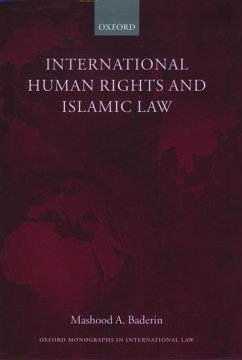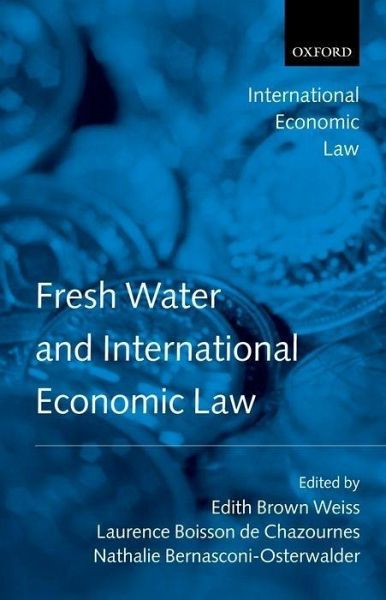
Fresh Water and International Economic Law
Versandkostenfrei!
Versandfertig in 1-2 Wochen
160,99 €
inkl. MwSt.

PAYBACK Punkte
80 °P sammeln!
Fresh water resources are at the same time ecological, economic, social, and cultural goods and must be managed accordingly. However, efforts to manage these resources are complicated by tensions arising from possible clashes between the regimes favouring privatization, trade and investment liberalization, and domestic and international regimes governing water resources, environmental protection and human rights. The relationships between the international economic and legalframework on the one hand and fresh water resource management and protection on the other, are complex and multifaceted.T...
Fresh water resources are at the same time ecological, economic, social, and cultural goods and must be managed accordingly. However, efforts to manage these resources are complicated by tensions arising from possible clashes between the regimes favouring privatization, trade and investment liberalization, and domestic and international regimes governing water resources, environmental protection and human rights. The relationships between the international economic and legal
framework on the one hand and fresh water resource management and protection on the other, are complex and multifaceted.
This book addresses the key interdisciplinary issues that increasingly confront policy makers, tribunals, arbitration bodies and other institutions. It focuses primarily on law, but also includes perspectives from economics, political science and other disciplines. It examines such questions as are governments free to decide whether or not to export water resources? Can foreign investors sue host states for adopting measures to control water pollution? Can international trade rules be used to
reduce or eliminate water related subsidies? Do rules on the liberalization of water services affect domestic and international human rights obligations relating to water supply? More generally, how do the procedural rights of states, individuals, affected communities and investors affect decisions
regarding the right to drinking water, the rights of investors to exploit water resources, and the rights of governments to protect their lakes, rivers and groundwater?
framework on the one hand and fresh water resource management and protection on the other, are complex and multifaceted.
This book addresses the key interdisciplinary issues that increasingly confront policy makers, tribunals, arbitration bodies and other institutions. It focuses primarily on law, but also includes perspectives from economics, political science and other disciplines. It examines such questions as are governments free to decide whether or not to export water resources? Can foreign investors sue host states for adopting measures to control water pollution? Can international trade rules be used to
reduce or eliminate water related subsidies? Do rules on the liberalization of water services affect domestic and international human rights obligations relating to water supply? More generally, how do the procedural rights of states, individuals, affected communities and investors affect decisions
regarding the right to drinking water, the rights of investors to exploit water resources, and the rights of governments to protect their lakes, rivers and groundwater?



